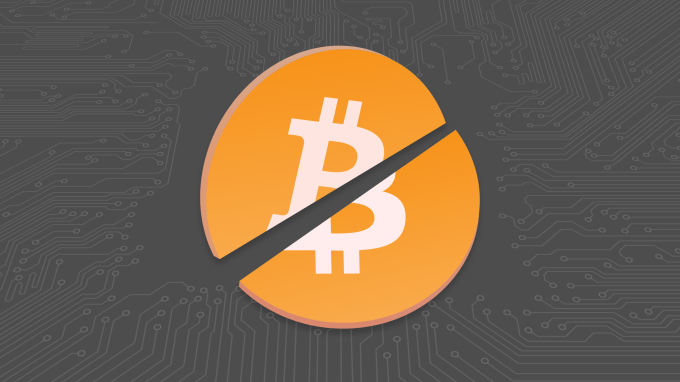Banks in the United Kingdom are turning a deaf ear to bitcoin exchanges, despite the government’s pro-blockchain position, according to financial writer Roger Aitken, writing in Forbes. Unless the situation changes, the banks will undermine bitcoin’s progress and drive Cryptocurrency entrepreneurs out of the banking system.
This fact together with the uncertainty surrounding the pound due to Brexit could be a disaster for those who live in the UK, the banks are feeling under threat. Hopefully the government will step in and tell them not to be so stupid.
Cryptopay, a bitcoin brokerage, recently informed customers that it will no longer support British Pound deposits and withdrawals on account of new bank policies. Such incidents have increased as bitcoin has gained popularity.
Cancellation of GBP deposit and withdrawal facilities limits people to Single Euro Payments Area (SEPA) transfers, making Cryptopay’s buying and selling useless to most British customers.
U.K. Banks Shun Bitcoin
A dozen or more U.K. brokerages and bitcoin exchanges have suffered over the past three to four years as banking facilities have become unavailable. Some have closed or resorted to awkward arrangements.
Britcoin, which became rebranded as Intersango, started in 2011. It faced problems with U.K. bank transfers before eventually closing. An August 2012 update noted that bridging the gap between bitcoin and the conventional banking system was costly on account of technical issues, missing transfers, and accounts frozen and closed without warning.
In 2014, Bit121 had a promising start, but banks withdrew their support and the exchange closed.
In Bitcoin We Trust suffered the same fate. It resorted to using postal orders before giving up.
Coinfloor, one of the only U.K. exchanges still operating, uses SWIFT transfers, which incur hefty costs and delays. The minimum transfer is £1,000 (c.$1,250).
Banks Pour On The Pressure
CoinJournal, a bitcoin publication, saw its banking services come to an abrupt end after its U.K. banking provider Barclays terminated its business account. CoinJournal received no official warnings prior to its account closure. Even more alarmingly, Barclays still hasn’t given a reason for the extreme action.
CoinJournal believes the decision taken by Barclays to close its business account was an “automated” call, after seeing a pattern of banking transactions involving prominent bitcoin exchange and service provider Circle.
The decision was likely “a result of us using Circle to transfer fiat from ad revenue into bitcoin to pay our writers and some overheads,” a representative for the publication told CCN.
Similar scenarios have played out in Australia and New Zealand.
BitNZ, a New Zealand bitcoin exchange, has announced it is closing due to the refusal of New Zealand banks to allow bank accounts to trade bitcoins, and has advised customers to withdraw all funds before April 15, 2017.
The Australian Competition and Consumer Commission is scrutinizing attempts by Australia’s biggest banks to swallow fintech companies developing technologies like blockchain solutions in the financial sector.
P2P Services Fill The Void
Peer-to-peer services match individual buyers and sellers in the U.K. in lieu of traditional exchanges. Trust is established by reputation.
Once a buyer has paid, usually with a bank transfer the seller sends the bitcoins.
As for other nations, Russia recently relaxed its regulatory position and taken a “wait and see” approach. It has effectively legalized bitcoin and allowed for exchanges to operate.
Switzerland is a more progressive country. It is easy to buy bitcoins through a network of ATMs on the rail system.
In Japan, it is possible to pay electric bills with bitcoin.
The United States has a more complex regulatory framework. But progress is on the horizon since the New York BitLicense took effect in 2015, with other state’s following a similar approach.
Bitcoin is legal in China, although the central bank recently stopped highly leveraged trading.
U.K. Banks At Odds With Government
The banking sector is clearly at odds with the U.K. government, which is openly pro-blockchain. The situation is peculiar, with the government saying the country is open to bitcoin but the banking sector standing in the way.
Since the financial crisis, the taxpayer has become the majority shareholder in the Royal Bank of Scotland, holding at around 82% of the bank. This would normally translate into a certain amount of leverage by the taxpayer.
The U.K. also has a reputation for being a fintech hub, to which the banking sector seems to have taken exception.
For whatever reason, the banks have closed ranks and chosen not to work with bitcoin.
The fact that bitcoin is decentralised and fiat currency is centralised could be at the root of the conflict.
Also read: Blockchain platform Waves raises more than $2m at the start of the crowdsale campaign
What’s To Be Done?
Money cannot flow easily from the blockchain economy to the traditional financial sector and vice versa without banks’ cooperation. The bitcoin sector is not large enough to offer all the goods and services needed to make bitcoin a sufficiently broad means of payment.
Bitcoin’s volatility also makes it an unsuitable unit of account or store of value. While it’s a great transfer medium, its price against fiat fluctuates too much for most people.
The bitcoin economy won’t expand until bitcoin is better suited as a means of payment. But it won’t be better suited without more growth and stability.
Waves, a custom blockchain tokens platform, offers a solution – fiat-backed blockchain tokens. It raised $16 million last summer through crowdfunding. Waves can act as a gateway between the blockchain and the fiat world.
Customers pay money into the gateway using a bank transfer or another suitable means, and the gateway issues them the same sum in blockchain tokens
The same exchange occurs in reverse when customers cash out their Waves GBP and have them sent as “real” GBP to their bank account. Waves essentially serves as a toolkit.
Sasha Ivanov, CEO and founder of Waves, noted that Waves can make money more efficient. By putting fiat money on the blockchain, Waves can make it more transparent and faster, and it can reduce the cost of sending it abroad.
Ivanov thinks Waves can introduce competition and encourage banks to become more accountable. If banks in one sector in one country won’t work with Waves, it will work with those in another jurisdiction.
Waves does not immediately solve the problem of U.K. banks’ hostility to bitcoin, but it suggests the roadblocks are not insurmountable. The answer may be to work around them rather than with them.
David Ogden
Entrepreneur
David – http://markethive.com/david-ogden





